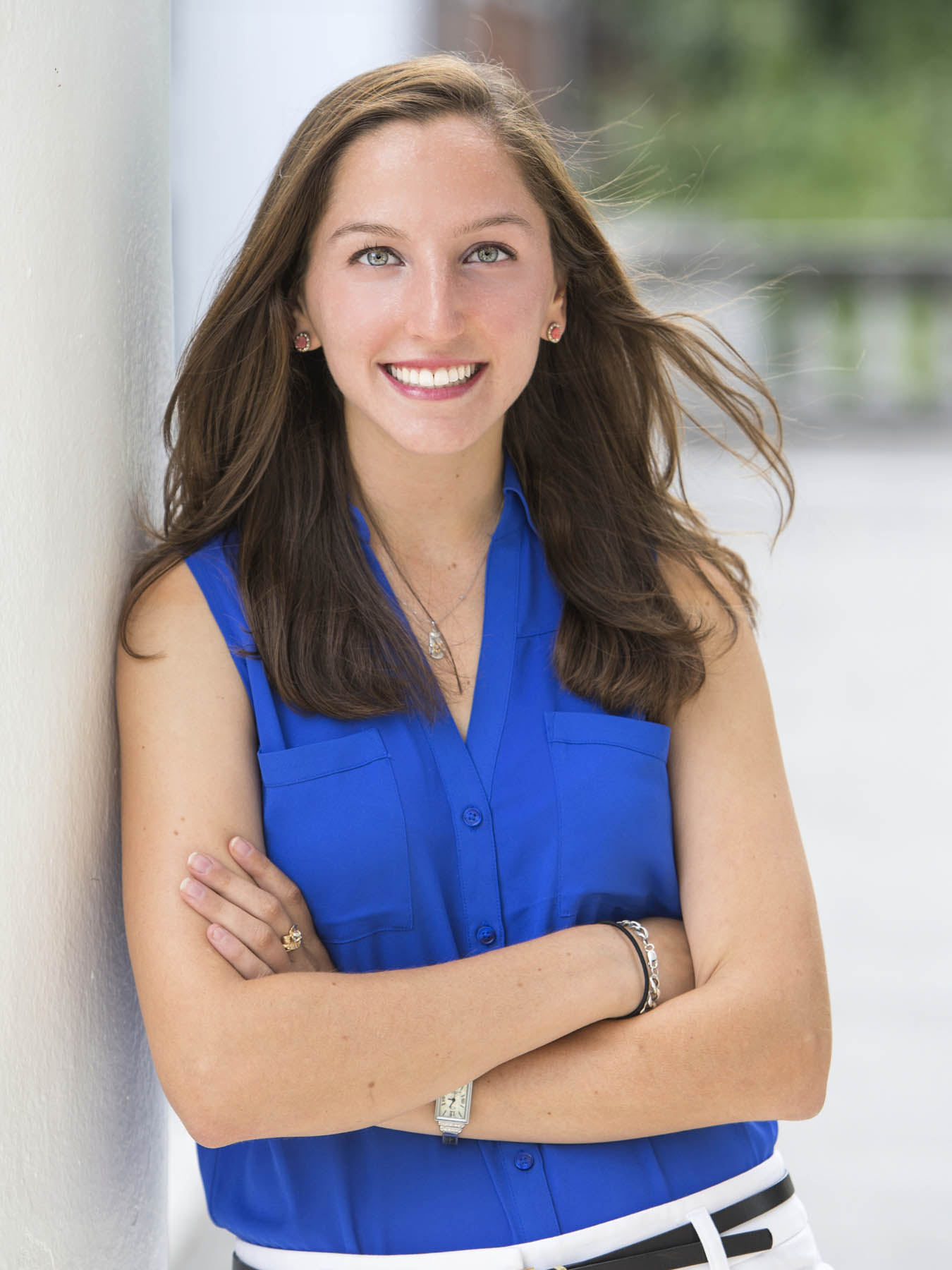In September, as U.S. government leaders in Washington were considering limited military strikes on Syria, leading members of the global counterterrorism community gathered in Israel for the World Summit on Counterterrorism.
Each of the attendees was given a report on Syria’s chemical and biological weapons program and the use of those weapons in the civil war. The basis of that report was generated by University of Virginia third-year student Rachel Schwartz, a biology major who is also hoping to major in foreign affairs.
How did a 20-year-old from Oakton, Va., come to play a central role in a tense discussion with global military and political implications? Simple: Schwartz is smart, and she landed a great internship.
“I’ve always been interested in bioterrorism and biosecurity and it has always been something that I wanted to explore, so I decided to take this summer to see if I really liked the field,” she said recently at a coffee shop on The Corner.
To make that happen, Schwartz spent her winter break looking for an internship that would suit her interests. She found the International Institute for Counterterrorism, where graduate and undergraduate interns can, among other things, contribute to research at the Israel-based institute.
To apply for the internship, Schwartz used a final paper she had written a year earlier for an antiterrorism class she took at U.Va. with senior lecturer Fred Hitz, who has served in the CIA’s clandestine service in Africa and as legislative council to the director of Central Intelligence.
“I did my paper on Syria and chemical weapons,” said Schwartz, adding that the class assignment in the Frank Batten School of Leadership and Public Policy was really what stoked her interest in the topic. “The institute came back and said I could do my research on Syria because it was so timely. I was completely OK with that because I had already done some research.”
Interns at the institute are charged with writing a thesis on an approved topic. Schwartz said she had no expectation that her research would be published. In fact, as far as she knows, out of her class of 15 summer interns, only she and one other had their work published on the institute’s website. The fact that her work was also used at a major conference was beyond her dreams.
News outlets referenced the report and, in at least one instance, even mentioned her by name.
About a month into her internship and weeks ahead of news reports that the Assad regime had used chemical weapons on civilians, the director and deputy director of the institute called her into a meeting. They were very interested in her research on Syria and its chemical weapons stockpile and wanted to see her thesis as soon as it was completed.
Schwartz turned it in quickly, not knowing at the time that it would become the basis of the report the institute issued at its annual counterterrorism conference. The briefing paper’s first footnote included this wording: “The report is based in great part on the paper by Rachel Schwartz (ICT intern), “Case Study: Syria’s Chemical and Biological Weapons Program and the Use of These Weapons in the Syrian Civil War Today.”
Schwartz was thrilled to learn her work was being circulated to such a group. “They invite approximately 100 speakers, all the foremost experts in their fields, all relating to counterterrorism, biosecurity, homeland security, law … psychology, anything having to do with terrorism,” she said.
As the summer progressed, the opportunities for Schwartz kept coming. Her supervisor invited her to staff a summertime, graduate-level counterterrorism studies program; in return, she could sit in on the classes. Schwartz was excited because she had told her supervisor at the outset that she was eager to learn everything she could about terrorism while she was at the institute.
“The people surrounding me were top experts in their fields and are literally creating textbooks on terrorism right now,” she said. “The internship in and of itself was amazing, but this opportunity made it exponentially more incredible.”
Schwartz did not come to U.Va. by accident. Her sister, Lauren, a 2010 alumnus, and brother, Robert, a 2005 alumnus, both graduated from the College of Arts & Sciences, and parents Sheryl and Barry have played a large role in involving families in the U.Va. experience, having founded the Society of University Families.
So what’s next for Schwartz? “My goal in life is to find what I am passionate about and to work for it,” she said. “Doing this internship, I found something I was really intrigued by and passionate about and I’m looking forward to where this internship experience leads me..”
Possibilities include working for the government, a think tank or perhaps a private security firm. “I just want to find out what’s out there and am still searching,” she said. “I’m up for anything.”
Media Contact
Article Information
October 11, 2013
/content/intern-international-expert-uva-undergrad-rachel-schwartz-weighs-syria

